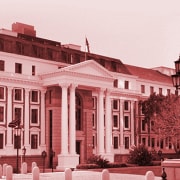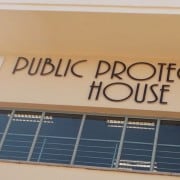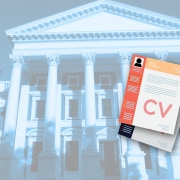|
Getting your Trinity Audio player ready...
|
By Kirsten Pearson and Kavisha Pillay
CORRECTION: Corruption Watch wishes to correct a previous observation made, that Professor Boitumelo Mmusinyane may not qualify for the role of public protector due to not being admitted as an advocate. We have been corrected in this regard, and Prof Mmusinyane is, in fact, admitted as an advocate of the High Court. Corruption Watch apologises for any misconceptions created, and wishes Prof Mmusinyane well in the upcoming interview process.
The appointment of South Africa’s new public protector is well under way, as the parliamentary committee responsible for managing this process recently shortlisted eight candidates who will undergo interviews in August.
The eight are: Advocate Kholeka Gcaleka, Advocate Oliver Josie, Magistrate Johannah Ledwaba, Advocate Muvhango Lukhaimane, Advocate Lynn Marais, Professor Boitumelo Mmusinyane, Advocate Tommy Ntsewa, and Advocate Tseliso Thipanyane.
Since 2016, Corruption Watch has taken a proactive role in engaging with and closely monitoring public appointment processes. We advocate for transparency and avenues for public participation in these proceedings, as well as the use of merit-based criteria in the selection process to ensure that only the most qualified individuals are selected and thereby entrusted with the crucial responsibility of managing complex public bodies.
Our recent submission to Parliament on the 38 candidates who were being considered for shortlisting, assessed whether each individual met the minimum requirements which are set out in Section 1(A) of the Public Protector Act, which prescribes the necessary qualifications and experience needed to occupy the position of public protector.
We also highlighted information that may be considered as a red flag when assessing the candidate’s integrity and ethics, as well as business interests and company ownership.
Here are Corruption Watch’s findings relating to the eight candidates who made the shortlist.
Advocate Kholeka Gcaleka
CV: Adv NK Gcaleka
Gcaleka is currently the acting public protector after serving as the deputy public protector. She holds a Bachelor of Laws (LL.B) degree from University of KwaZulu-Natal, a Masters degree in Cyber Security Governance, and a Masters in Laws (LL.M) degree from the University of Johannesburg. She has previously worked as a state advocate and senior deputy director for the National Prosecuting Authority (NPA).
Additionally, she has served as a special advisor to several ANC executive ministers in both the Zuma and Ramaphosa administrations. In accordance with Section 1A of the Public Protector Act 23 of 1994, Gcaleka meets the basic requirements for the position of public protector.
In 2010, Gcaleka was quoted as saying that there should be no concern around the plan of then national director of public prosecutions Menzi Simelane to close the Specialised Commercial Crime Unit and Asset Forfeiture Unit, among others. This raised controversy as she was the chairperson of the Society of State Advocates at the time, and her comments caused two senior state attorneys to resign.
In 2011, Gcaleka was appointed as the state prosecutor in the high-profile murder case against Richard Mdluli. This also raised controversy, as she had been a prosecutor in the case against Glenn Agliotti, which was thrown out because the state had not brought a prima facie case of murder against the accused. In 2017, a witness in the Richard Mdluli case alleged that Gcaleka had tried to coerce him into implicating Mdluli as a guilty party. It was also alleged that the prosecution team tampered with the recording of the meeting between the witness and the advocate was.
In 2017, when Malusi Gigaba was appointed by then President Jacob Zuma to the position of minister of finance, Gcaleka was appointed as his legal advisor. This was a controversial appointment due to her 2010 comments of support for the restructuring of the criminal justice system.
Also in 2017, senior treasury officials stated that the Treasury had been “captured”, citing among other things, that during a forensic audit by then Director-General Dondo Mogajane, into Eskom’s coal contracts with a company that used to be owned by the Gupta family and Duduzane Zuma, documents that should have been seen by Mogajane first were sent to Gigaba’s advisors first, including Gcaleka.
Advocate Oliver Josie
CV: Adv O Josie
Josie recently resigned from his position as chief operating officer of the Department of Trade, Industry, and Competition’s Competition Tribunal and currently serves as a chairperson on the Department of Water and Sanitation’s Audit and Risk Committee. Josie has previously worked in executive-level legal positions within the NPA, South African Police Service, Standard Bank Group, City of Cape Town, and Department of Economic Development. He holds a Bachelor of Politics, and an LL.B and B.Proc. degree from the University of South Africa. Additionally, Josie has master’s degrees in law and business leadership from University of South Africa. Josie meets the basic requirements for the position of Public Protector.
Magistrate Johannah Ledwaba
CV: Ms JK Ledwaba
Ledwaba is currently a magistrate and has a Bachelor of Laws and B.Iuris degrees from Vista University. She received additional legal training at the Pretoria Law School. Before becoming a magistrate, Ledwaba worked primarily as a prosecutor and state advocate for the NPA, most recently with the Asset Forfeiture Unit. Ledwaba meets the basic requirements for the position of Public Protector.
Advocate Muvhango Lukhaimane
CV: Adv M Lukhaimane
Lukahimane currently serves as an acting judge at the Gauteng High Court and has occupied the position of pension funds adjudicator since 2013. Her qualifications include a B.Iuris, LL.M in Constitutional (Labour Law), Postgraduate Diploma in Management Studies, Postgraduate Diploma in Financial Planning, and a Master of Business Administration. In accordance with Section 1A of the Public Protector Act 23 of 1994, Lukhaimane meets the basic requirements for the position of public protector, when considering her experience in public administration.
Lukhaimane was also a front runner in the 2016 public protector process. She interviewed very well in 2016, but the one concern which was raised in 2016 was her time in intelligence services.
Advocate Lynn Marais
CV: Adv L Marais
Marais has an extensive career in the legal field, including experience as an advocate, acting magistrate, and various roles in Legal Aid South Africa and other legal practices. Marais meets the basic requirements for the position of public protector, when her cumulative experience in the administration of justice and practicing as an advocate is taken into consideration.
Professor Boitumelo Mmusinyane
Mmusinyane holds an LL.D on Comparative Right to Adequate Housing, a diploma in Human Rights, an LL.M with specialisation in Human Rights, and an LL.B. He has held various roles, including deputy director in the Faculty of Law undergraduate studies, senior lecturer in private law, and Investigator at the Office of the Public Protector.
Prof Mmusinyane meets the requirements for the position of public protector. We had previously stated that we were unsure if he had been admitted as an attorney, but we have been informed that he has, and we now state that he does indeed meet the requirements. See our correction at the beginning of the page for more detail.
Advocate Tommy Ntsewa
CV: Adv KTT Ntsewa
Ntsewa is a self-employed advocate specialising in the legal areas of corporate governance, personal injury, contract, labour, corporate, mining, criminal, family, constitutional, and administrative law. He previously served as legal advisor to the minister of co-operative governance and traditional development, and the Limpopo premier’s office. He holds LL.B. and B.Iuris degrees from University of Lausanne. In accordance with Section 1A of the Public Protector Act 23 of 1994, Ntsewa meets the basic requirements for the position of public protector.
In 2009, the Chairpersons Association demanded that Ntsewa step down from his position as chairperson of the South African Geographical Names Council regarding a dispute on the renaming of an area.
Ntsewa is an active director of Mohlodi Holdings, Etlang Media, and Ventramax Trading. If appointed, he may face a conflict of interest. During the vetting and interview process it is therefore important to determine what business activities these companies are involved in. Do they do any business with the state? Does he have an active role in running them and if appointed as the public protector, would he resign from these companies?
Advocate Tseliso Thipanyane
Thipanyane holds an LL.M in International Human Rights, Constitutional Law, Criminal Justice and Administrative Law from the University of the Western Cape, and another LL.M in Corporate Law from the University of Johannesburg. He has occupied various senior positions in Chapter 9 bodies, such as the South African Human Rights Commission (SAHRC), and the Commission for the Promotion and Protection of the Rights of Cultural, Religious and Linguistic Communities.
In 2017, Thipanyane was appointed as the CEO of the SAHRC and served a five-year term. He is currently the chairperson of the Southern African Institute for Responsive and Accountable Governance, as well as the chief director for co-ordination in the Office of the Secretary-General of the Chief Justice. Thipanyane meets the basic requirements for the position of public protector.
The road ahead
According to the chairperson of the ad hoc committee to nominate a person for appointment as public protector, Cyril Xaba, the next stage in the appointment process is a two-week screening from 1 to 18 August. During this selection phase, all shortlisted candidates will undergo suitability screening, reference checks, and qualifications verification. Following this, interviews will be conducted, and the committee will discuss the candidates.
The August interviews will be open and accessible to the public. We hope that the interviews will assess each candidate’s skills, experience and qualifications, as well as their levels of integrity, leadership skills, independence and ethics – all of which are necessary for serving the interest of the public, and restoring stability and credibility to the Office of the Public Protector.
The committee aims to present its findings to the National Assembly by 31 August 2023, submitting one name for approval. The candidate must receive a two-thirds majority in the National Assembly to be recommended to the president for appointment.








